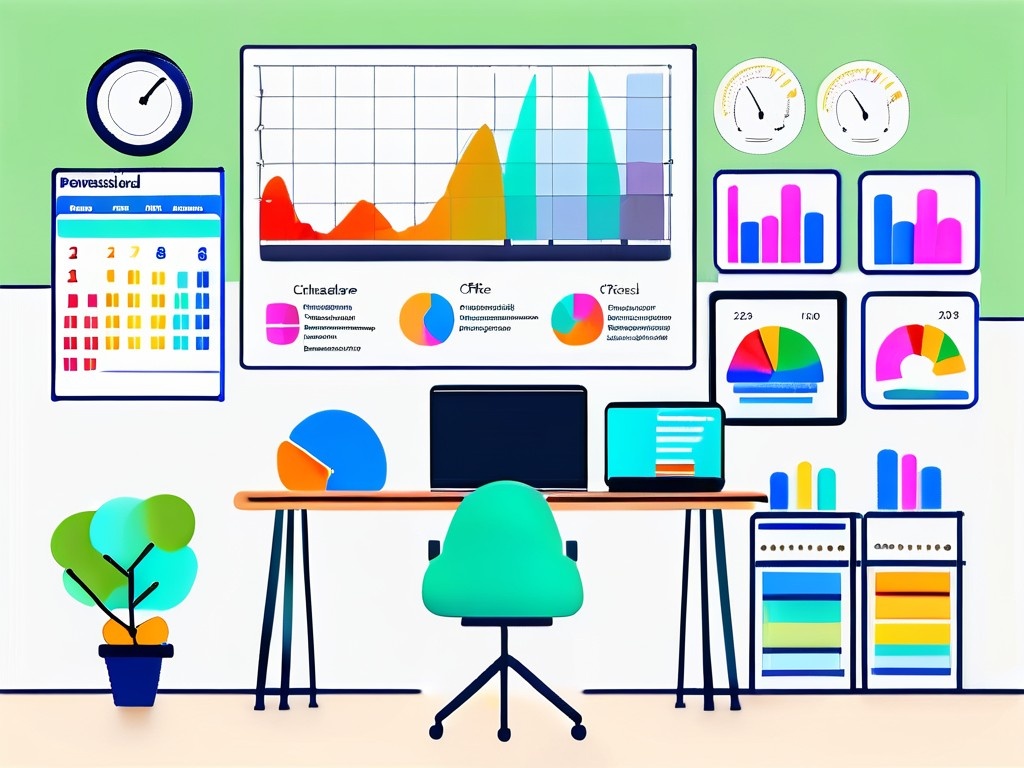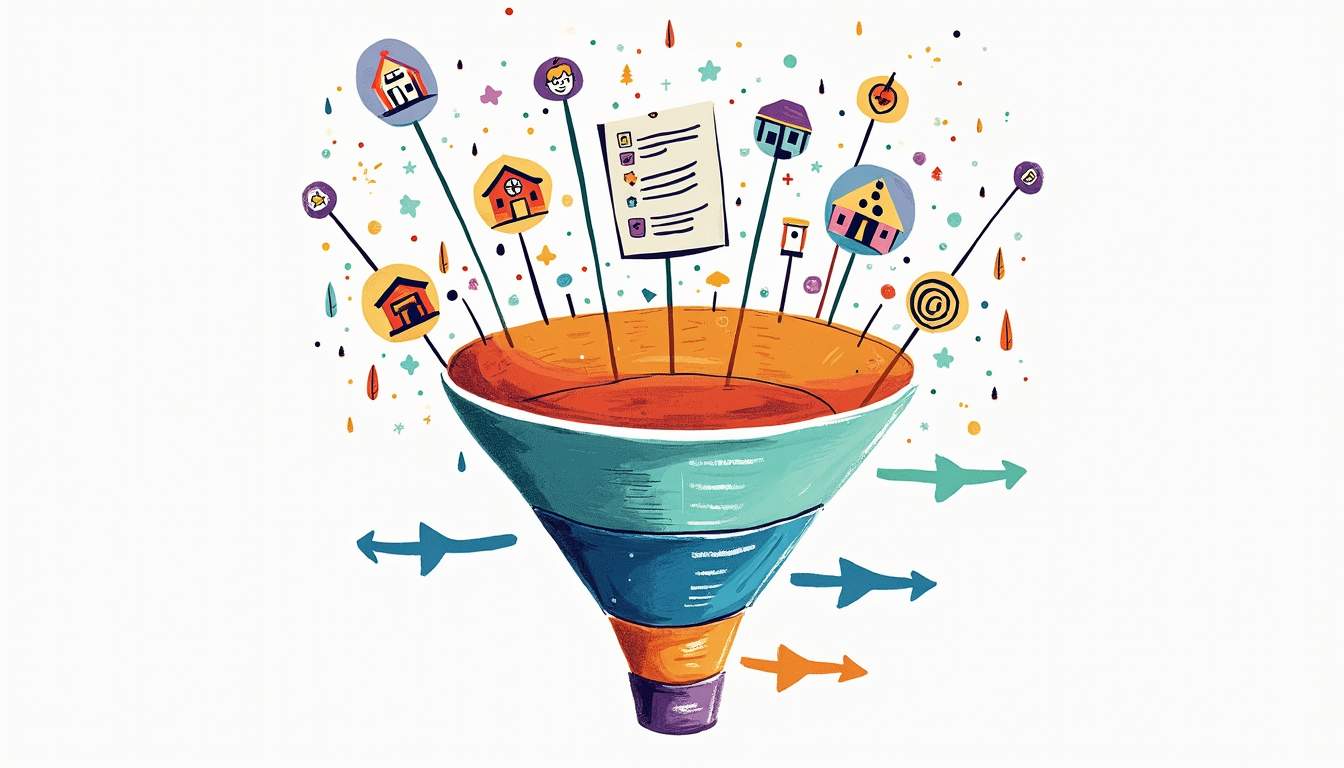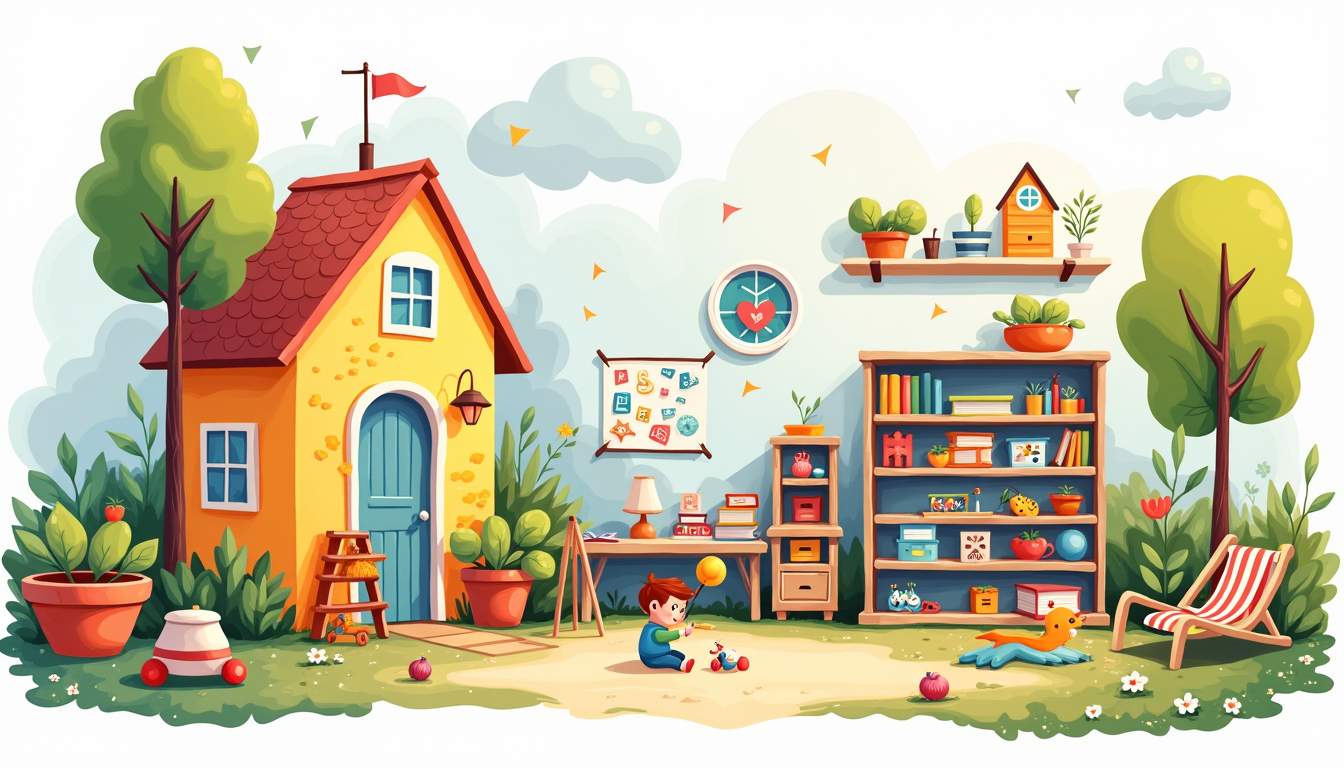In today’s fast-paced world, effective administration plays a crucial role in the smooth operation of childcare centers. Implementing a Customer Relationship Management (CRM) system can significantly enhance the management processes, ensuring that both administrators and parents enjoy a seamless experience. This article explores the various ways in which CRM can transform childcare administration, making it more efficient and user-friendly.
Understanding CRM and Its Importance in Childcare Administration
Customer Relationship Management (CRM) refers to a system that helps organizations manage interactions with current and potential customers. This tool is not limited to businesses; in childcare settings, CRM can play a transformative role in managing relationships with parents, staff, and even regulatory bodies.

Defining CRM in the Context of Childcare
In the context of childcare, CRM encompasses a variety of functionalities that aid in maintaining records, communicating with parents, and managing staff schedules. It provides a centralized platform where all information related to students, parents, and staff can be stored and accessed efficiently. By utilizing CRM systems, childcare centers can keep track of enrollment details, attendance records, and communication history, allowing for better management of their resources. Additionally, many CRM systems offer features such as automated reminders for parent-teacher meetings and alerts for important deadlines, ensuring that no critical information falls through the cracks. This level of organization not only streamlines operations but also enhances the overall experience for both staff and families.
Schedule a FREE 30 minutes Session with Us!
The Significance of CRM in Childcare Administration
The implementation of CRM in childcare administration is significant because it enhances operational efficiency. It allows administrators to automate routine tasks, reducing the time spent on manual paperwork. Moreover, CRM systems can facilitate better engagement with parents through timely updates and feedback mechanisms, ensuring that communication is both effective and transparent. This ultimately creates a more positive experience for families and fosters trust in the childcare institution. Furthermore, CRM tools can provide valuable insights through data analytics, helping administrators identify trends in enrollment, parent satisfaction, and staff performance. By leveraging this data, childcare centers can make informed decisions that promote growth and improve service quality, ultimately leading to a more nurturing environment for children. The ability to analyze and respond to these insights can set a childcare center apart from its competitors, making it a preferred choice for parents seeking the best care for their children.
The Impact of CRM on Childcare Administration Efficiency
CRM systems have a profound impact on the efficiency of childcare administration. By streamlining various processes, childcare centers can focus on what truly matters: the care and development of children.

Enhancing Communication through CRM
CRM tools facilitate communication in various forms. Whether it’s sending reminders about upcoming events, sharing important news with parents, or providing feedback on children’s progress, CRM systems enable swift and direct communication. Features like automated emails and messaging through portals help ensure that everyone stays informed, reducing the chances of miscommunication. Furthermore, many CRMs offer mobile applications that allow parents to receive real-time updates about their child’s activities, fostering a sense of community and involvement. This immediate access to information not only reassures parents but also enhances their trust in the childcare facility, creating a collaborative environment for the child’s growth.
Streamlining Administrative Tasks with CRM
Administrative tasks such as billing, enrollment, and scheduling can be time-consuming. CRM systems allow for the automation of these tasks, making it easier for administrators to manage operations efficiently. For instance, automated billing systems can track payments and send reminders to parents, reducing the workload on staff and ensuring timely payments. Additionally, CRM platforms often include features for tracking attendance and managing staff schedules, which can significantly reduce the administrative burden. By consolidating these functions into a single system, childcare centers can minimize errors and enhance productivity, allowing staff to dedicate more time to engaging with children and less time on paperwork. This not only improves staff morale but also contributes to a more organized and effective childcare environment.
Key Features of CRM Beneficial to Childcare Administration
To maximize the benefits of CRM, it’s essential to understand the key features that can enhance childcare administration. These functionalities are tailored to meet the unique requirements of childcare centers.
Data Management and Reporting
One of the most critical features of CRM systems is data management. Keeping track of vast amounts of information is made simple through centralized databases. Childcare centers can easily access data related to child development, attendance, and parent communication, which can be crucial for reporting purposes. Furthermore, robust reporting tools allow for the analysis of data trends, assisting administrators in making informed decisions. This capability not only streamlines administrative tasks but also enhances the quality of care provided to children by ensuring that educators have access to the most up-to-date information on each child’s progress and needs. By leveraging this data, childcare centers can tailor their programs to better support developmental milestones and address any areas of concern promptly.
Schedule a FREE 30 minutes Session with Us!
Scheduling and Time Management
Effective scheduling is paramount in childcare administration. CRM systems enable the scheduling of staff shifts, parent meetings, and classroom activities, minimizing scheduling conflicts. Additionally, automated reminders can help ensure that everyone is on the same page regarding important dates and times, promoting better time management throughout the institution. This feature not only enhances operational efficiency but also fosters stronger relationships between staff and families. By providing parents with clear schedules and updates, childcare centers can encourage greater involvement and communication, which is essential for a child’s success. Moreover, the ability to track staff availability and qualifications ensures that the right personnel are assigned to the right roles, optimizing the learning environment for children and ensuring compliance with regulatory standards.
Choosing the Right CRM for Your Childcare Center
With numerous CRM solutions available on the market, selecting the right one for a childcare center requires careful consideration of various factors. Making an informed decision can pave the way for seamless integration and optimal functionality.

Factors to Consider When Selecting a CRM
When choosing a CRM, consider the specific needs of the childcare center. Factors such as user-friendliness, scalability, and integration capabilities with existing systems should be at the forefront of the decision-making process. Additionally, evaluating the customer support provided by the CRM vendor can significantly impact the overall user experience. A user-friendly interface is particularly important in a childcare setting, where staff may not have extensive technical training. The ability to easily navigate the system can lead to increased efficiency and better service delivery.
Scalability is another critical factor; as your childcare center grows, your CRM should be able to accommodate an increasing number of users and data without compromising performance. Furthermore, consider the integration capabilities of the CRM with other tools you may already be using, such as billing software or communication platforms. This ensures that all aspects of your operations can work together harmoniously, reducing the likelihood of errors and miscommunication.
Evaluating CRM Providers for Childcare Administration
It’s essential to conduct thorough research on potential CRM providers. Look for providers that specialize in childcare administration, as they are more likely to understand the unique requirements of the sector. Requesting demonstrations and customer testimonials can help assess the effectiveness and reliability of the CRM solution being considered. Additionally, take note of the features offered by different providers, such as enrollment management, attendance tracking, and parent communication tools. These functionalities can greatly enhance the day-to-day operations of your childcare center.
Moreover, consider the long-term viability of the CRM provider. Investigate their track record in the industry, including how long they have been in business and their reputation among existing clients. A provider with a strong history of customer satisfaction and continuous improvement is likely to be a reliable partner as your childcare center evolves. Engaging with community forums or groups dedicated to childcare professionals can also yield valuable insights into the experiences of others who have navigated the CRM selection process, helping you make a more informed choice.
Implementing CRM in Your Childcare Administration
Implementing a CRM system can seem daunting, but with a structured approach, it can be a smoother process. Proper implementation ensures that the system works effectively for its intended purposes. A well-chosen CRM can serve as a central hub for managing relationships with parents, tracking child development, and streamlining administrative tasks, ultimately leading to a more organized and efficient childcare environment.
Steps to Successful CRM Implementation
Successful CRM implementation involves several critical steps. Begin by defining the objectives and expected outcomes of adopting a CRM system. This could include improving communication with parents, tracking enrollment and attendance, or managing billing and payments. Next, engage staff in training sessions to familiarize them with the new system, ensuring everyone is comfortable using it. A phased rollout can also be beneficial, allowing for adjustments based on initial feedback from users. Furthermore, consider appointing a dedicated CRM champion within your team—someone who can lead the charge, answer questions, and serve as a liaison between staff and the technology provider.
Schedule a FREE 30 minutes Session with Us!
Overcoming Challenges in CRM Implementation
Despite the many benefits, challenges may arise during CRM implementation. Resistance to change is a common hurdle; addressing this through clear communication about the advantages of the system can mitigate concerns. It’s essential to highlight how the CRM will save time and reduce repetitive tasks, allowing staff to focus more on nurturing the children. Additionally, troubleshooting technical issues promptly can help maintain momentum throughout the transition. Regular check-ins with staff can provide insights into their experiences and help identify areas for improvement, ensuring that the system evolves to meet their needs.
Moreover, integrating feedback loops can enhance the system’s effectiveness. By soliciting input from parents and staff, you can refine processes and features to better serve your community. For instance, if parents express a desire for more frequent updates on their child’s progress, the CRM can be adjusted to facilitate regular communication. This not only fosters a sense of involvement among families but also strengthens the bond between caregivers and parents, creating a collaborative environment focused on the child’s growth and happiness.







Share